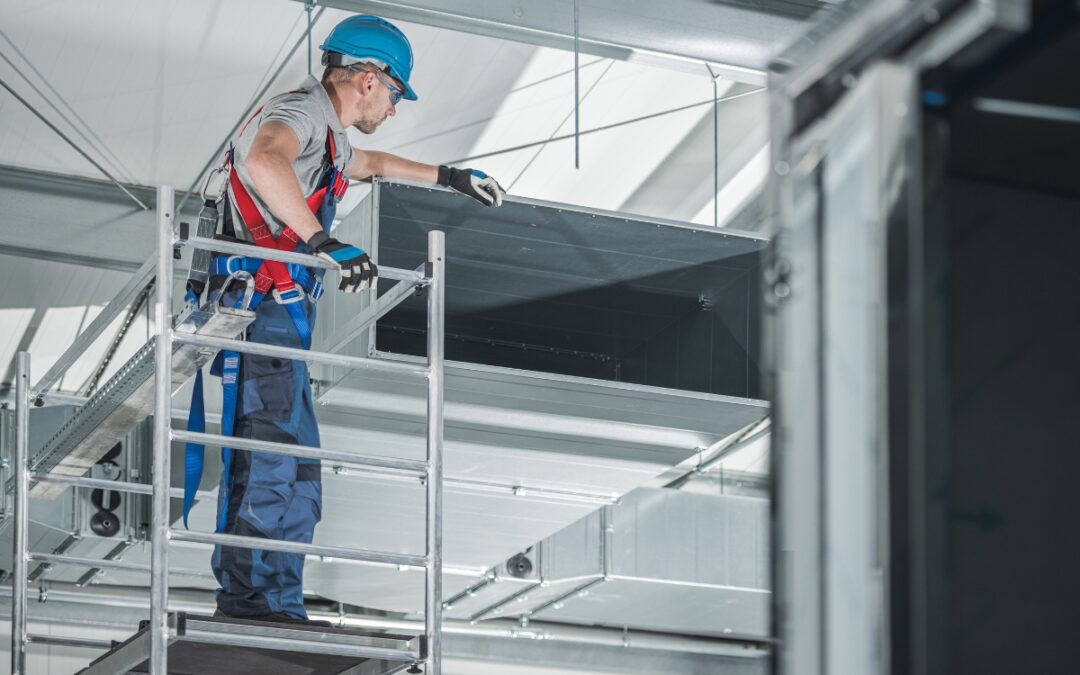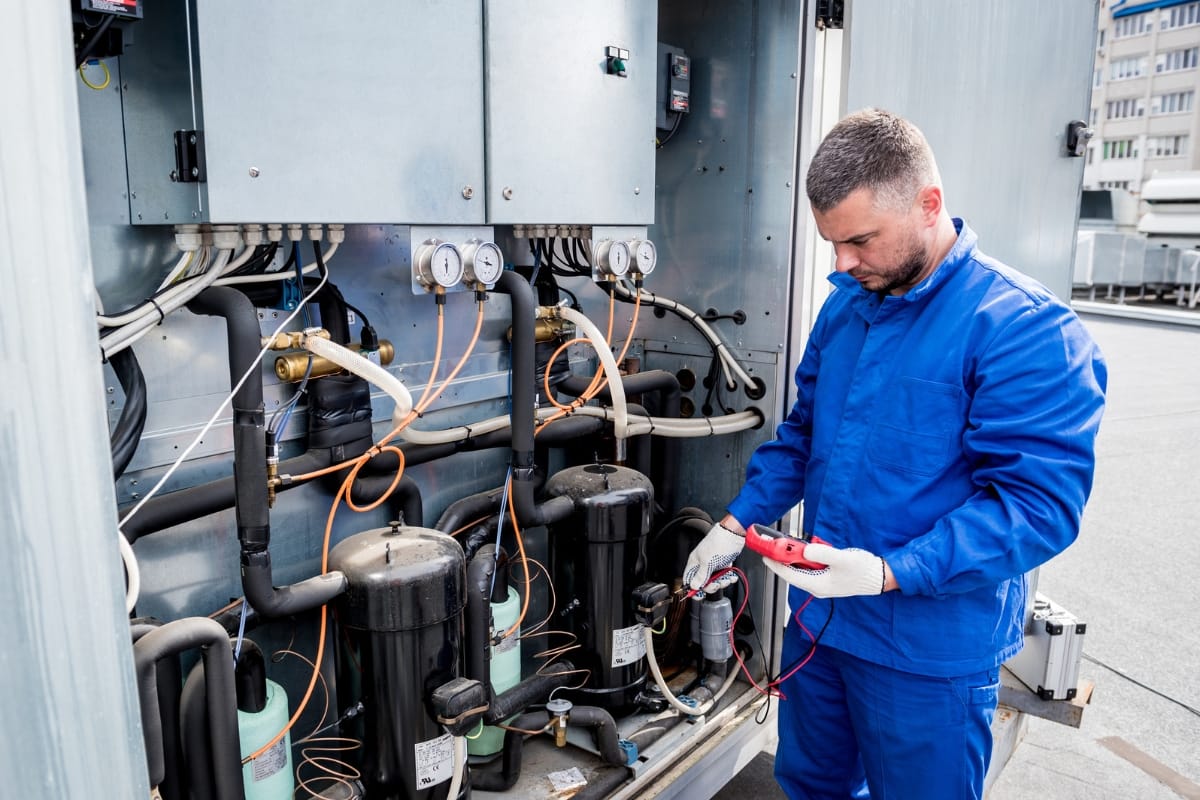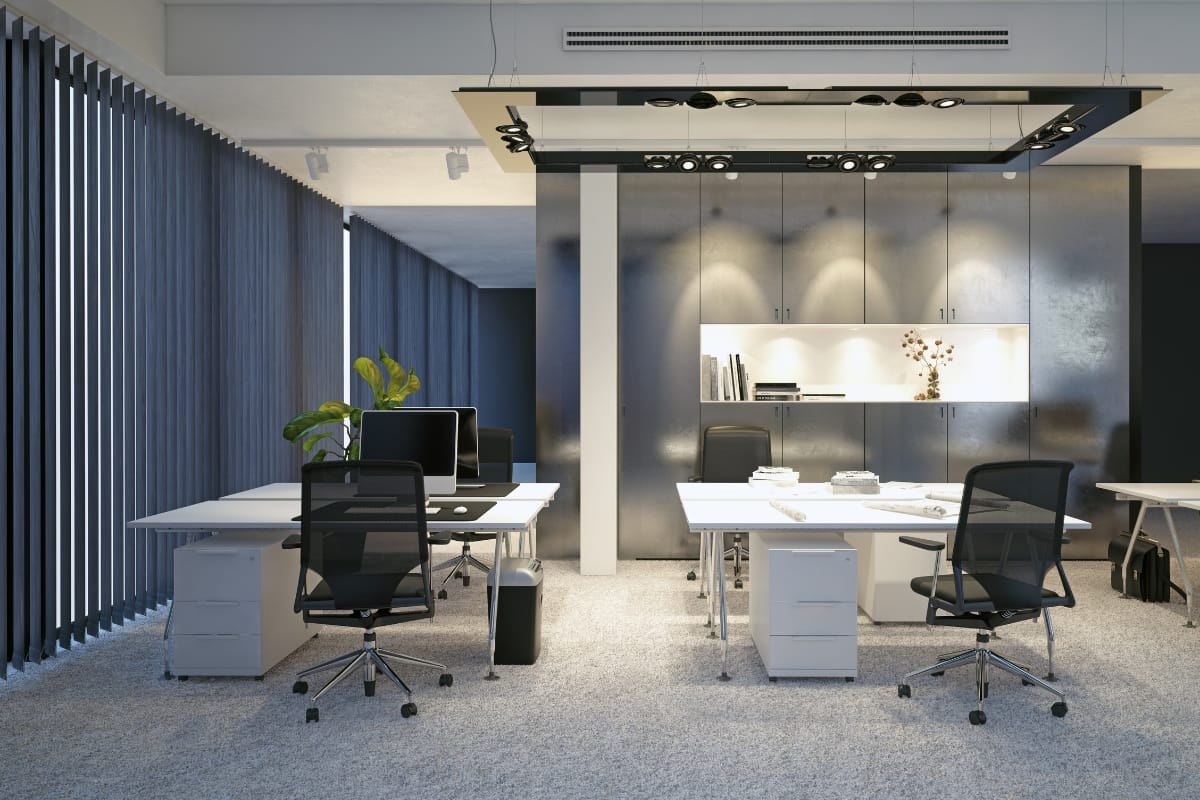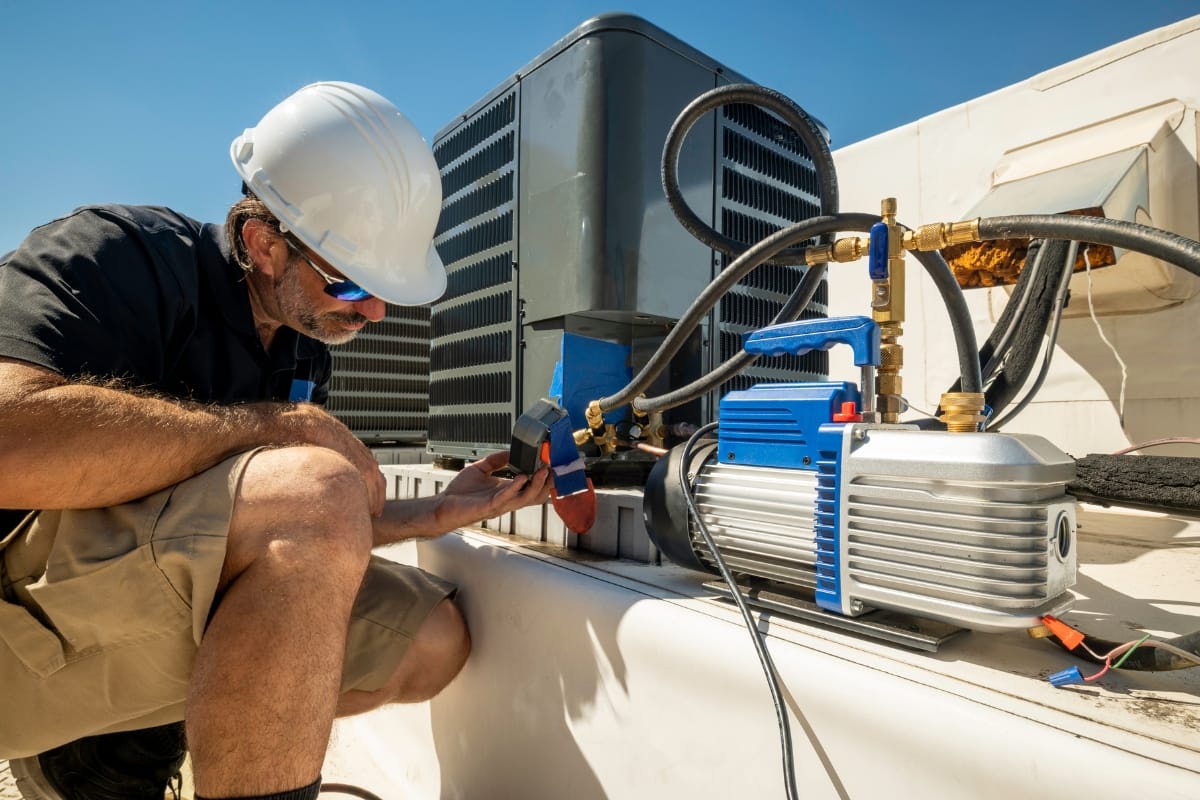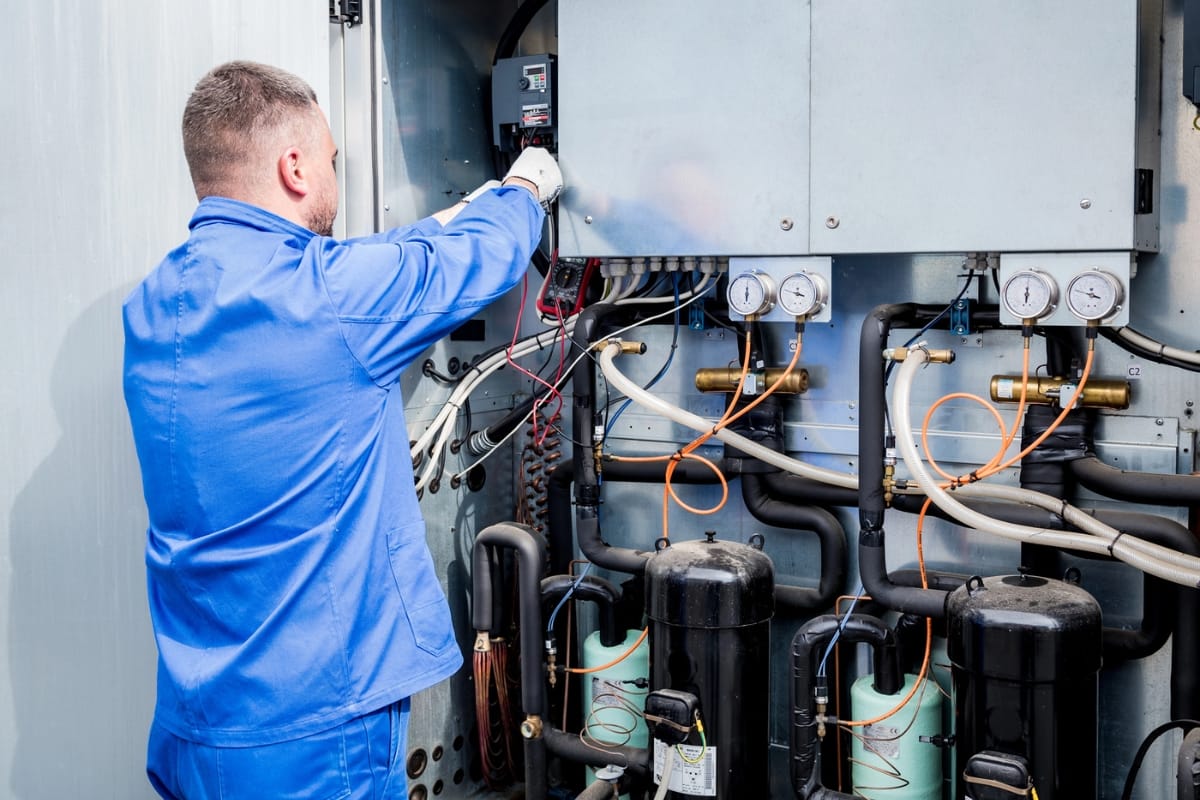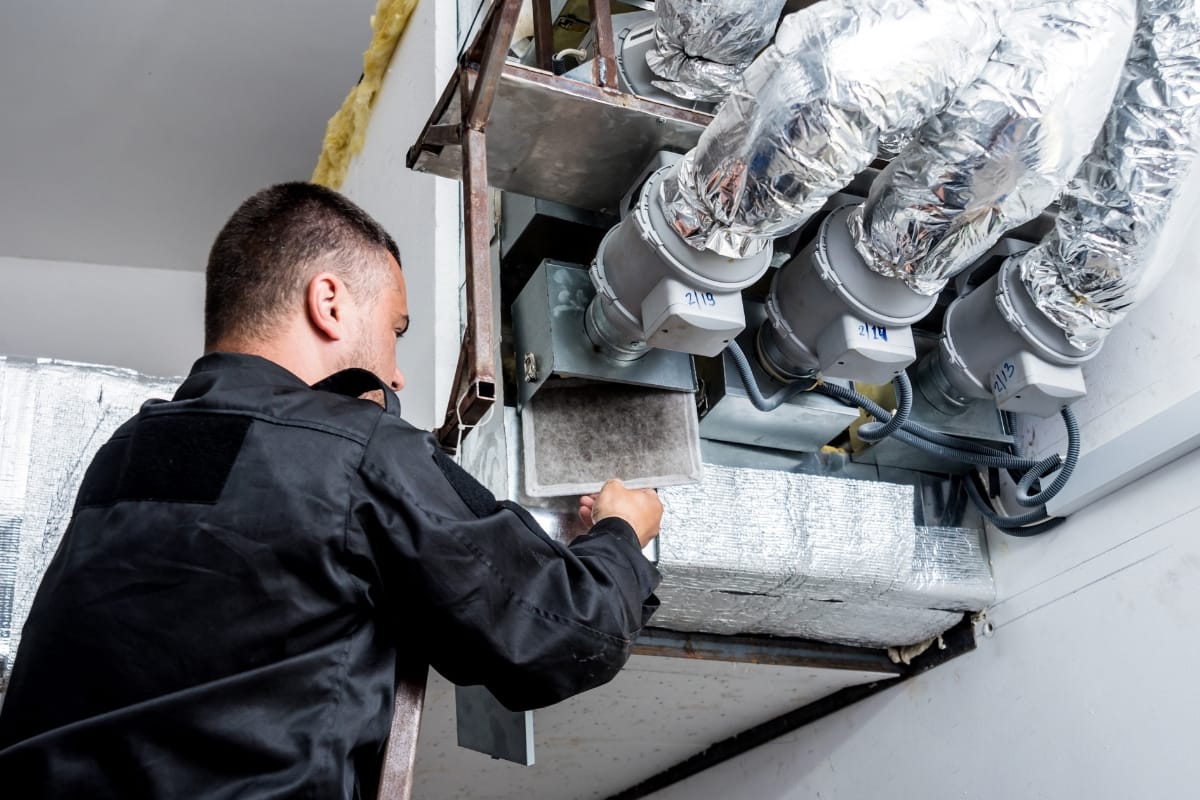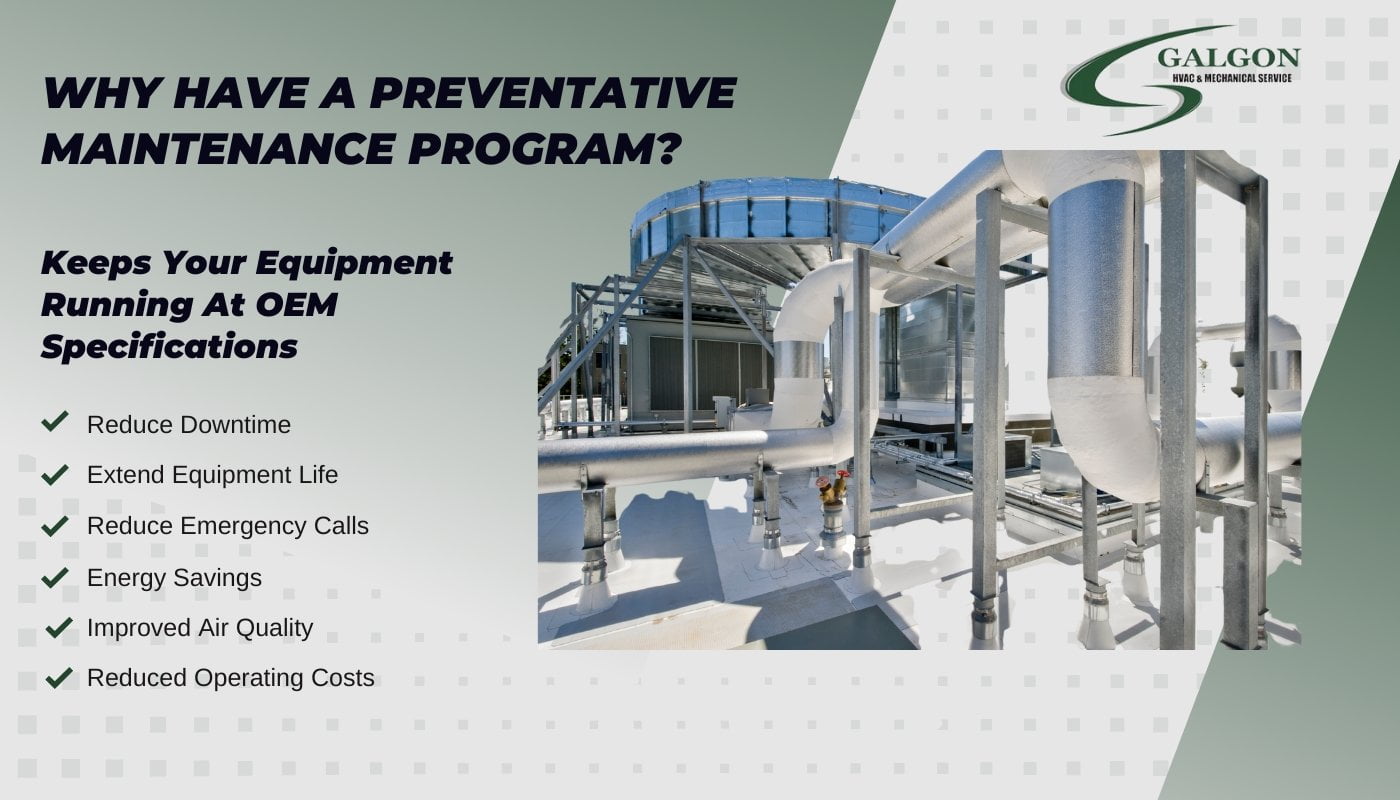As businesses continue to adapt to the ever-changing demands of the modern workplace, the importance of creating comfortable and safe working environments has become increasingly important.
Industrial HVAC systems play an integral role in providing employees with optimal working conditions, and with advancements in climate control technology, they have become even more efficient and effective.
This article delves into the ways in which cutting-edge HVAC technology is revolutionizing workspaces, and highlights the benefits that businesses stand to gain.
Whether you’re a business owner looking to optimize your workplace or simply curious about the latest innovations in HVAC, this article is packed with actionable insights and real-world examples to guide you through this exciting field.
Industrial HVAC Systems: How Can They Revolutionize Your Business?
Enhancing Workplace Comfort with Precision Temperature Control
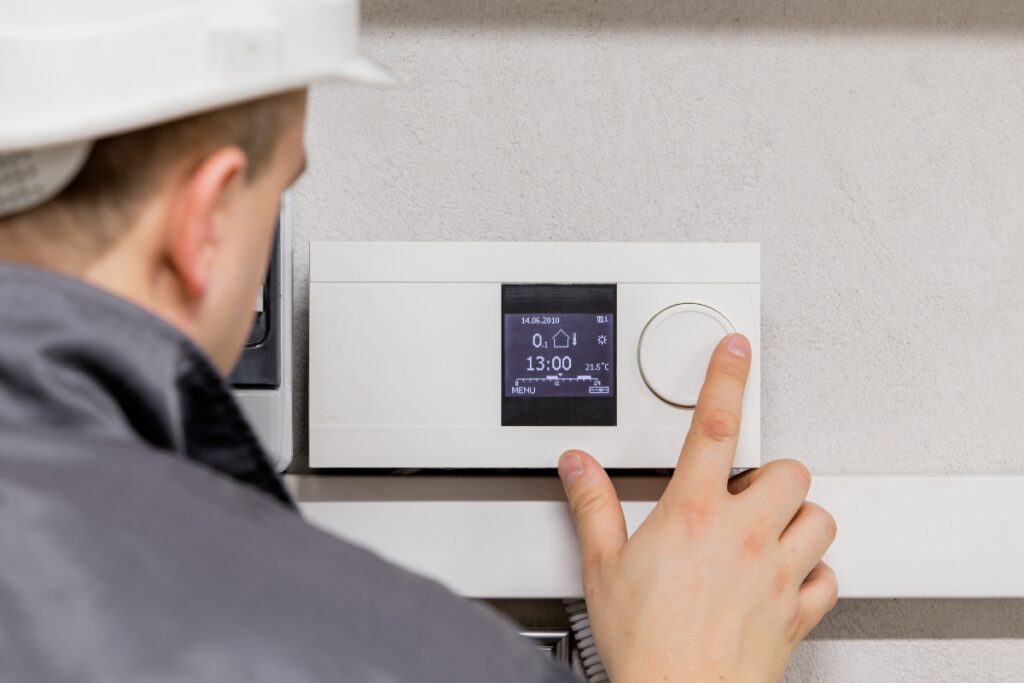
One of the key aspects of industrial HVAC systems is their ability to provide precision temperature control. Gone are the days when employees had to endure uncomfortable working conditions due to extreme temperatures.
With industrial HVAC, workspaces can now be maintained at an optimal temperature, ensuring maximum comfort and productivity.
Precision temperature control is achieved through advanced sensors and controls that constantly monitor and adjust the temperature levels. These systems can adapt to changing conditions, ensuring that the workspace remains comfortable regardless of external factors such as weather or machinery heat generation.
By maintaining a consistent and comfortable temperature, industrial HVAC systems help prevent employee discomfort and fatigue. This, in turn, leads to increased focus and productivity. Studies have shown that employees are more likely to perform well in environments where they feel comfortable, resulting in higher job satisfaction and overall well-being.
In addition to enhancing workplace comfort, precision temperature control also plays a crucial role in protecting sensitive equipment and materials. Certain industries require specific temperature ranges for optimal functioning or storage of products. Industrial HVAC systems ensure that these requirements are met consistently, reducing the risk of damage or spoilage.
The Importance of Air Quality Management in Industrial Settings
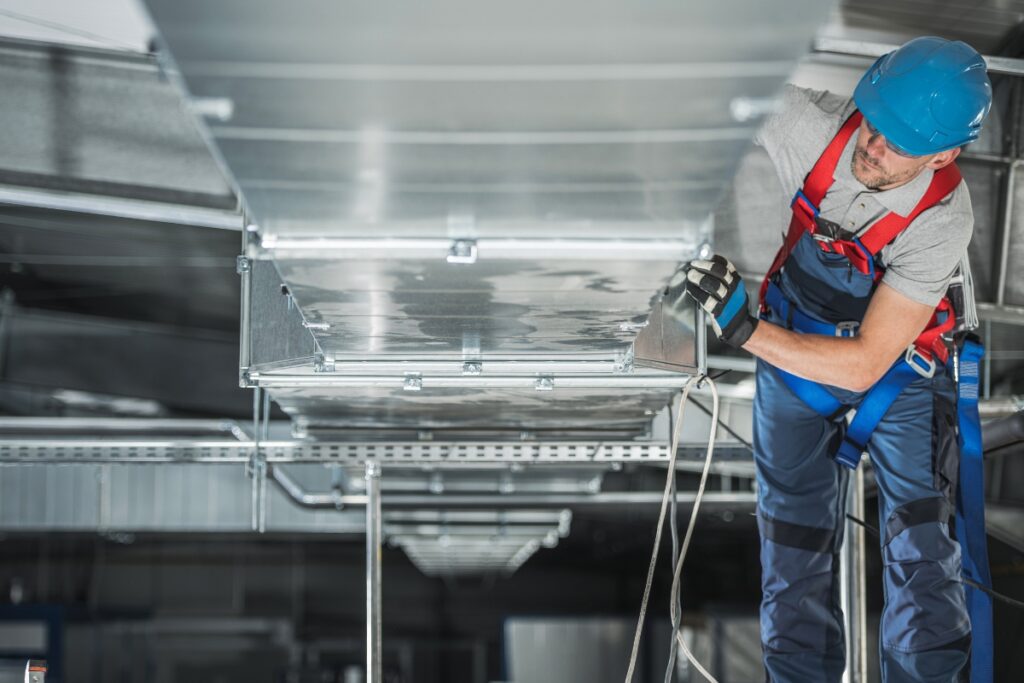
Air quality management is another vital aspect of industrial HVAC systems. In industrial settings, there can be various pollutants present in the air due to manufacturing processes or other activities. These pollutants can have adverse effects on both employee health and equipment performance.
Industrial HVAC systems incorporate advanced filtration technologies that effectively remove contaminants from the air. This helps create a clean and healthy working environment by reducing the presence of dust particles, allergens, volatile organic compounds (VOCs), and other harmful substances.
By improving indoor air quality, industrial HVAC systems contribute to better respiratory health for employees. Poor air quality can lead to respiratory issues, allergies, and other health problems. By ensuring clean air circulation, these systems help create a healthier workspace and reduce the risk of work-related illnesses.
Furthermore, air quality management also plays a crucial role in maintaining the performance and longevity of equipment. Dust and other particles can accumulate on sensitive machinery components, leading to reduced efficiency or even breakdowns. Industrial HVAC systems prevent this by filtering out contaminants before they can reach the equipment, thus improving its reliability and lifespan.
Energy Efficiency Solutions for Sustainable Industrial HVAC Systems
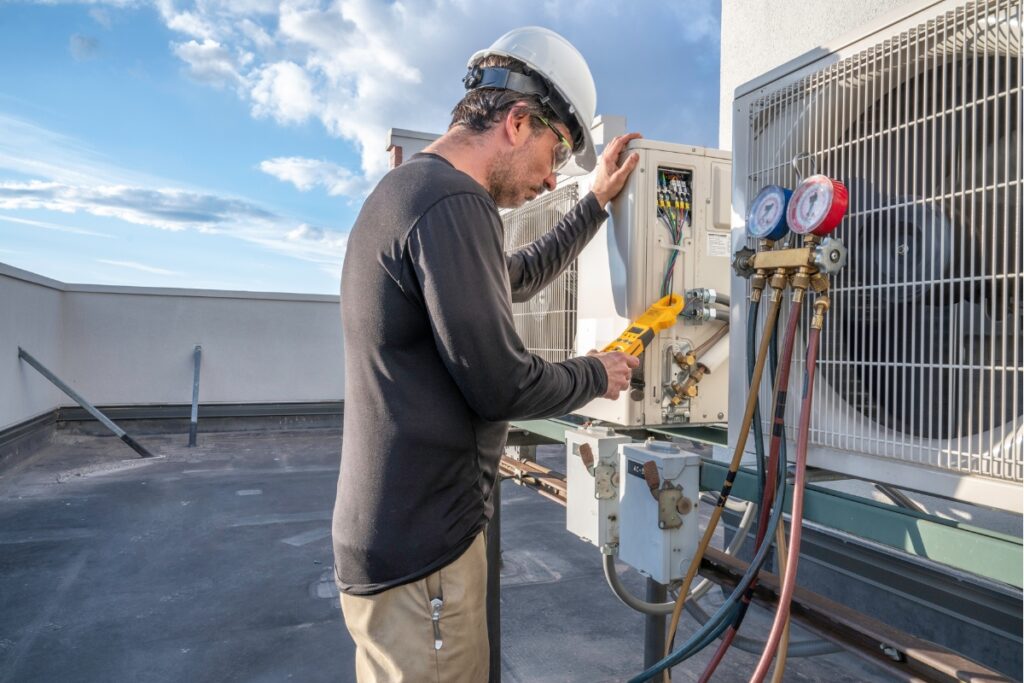
In today’s world, energy efficiency is a top priority for businesses across industries. Industrial HVAC systems have made significant advancements in this area, offering sustainable solutions that not only reduce energy consumption but also lower operational costs.
One of the key energy-efficient features of industrial HVAC systems is the use of variable speed drives (VSDs) for motors and fans. These drives allow the system to adjust its speed based on demand, resulting in significant energy savings compared to traditional fixed-speed systems.
Additionally, industrial HVAC systems incorporate advanced control algorithms that optimize energy usage based on factors such as occupancy levels and external weather conditions. By intelligently managing heating, cooling, and ventilation requirements, these systems ensure that energy is utilized efficiently without compromising comfort or air quality.
Furthermore, many industrial HVAC systems now integrate renewable energy sources such as solar panels or geothermal heat pumps. This further reduces reliance on traditional power grids and lowers carbon emissions.
Innovations in Industrial HVAC Ventilation Systems
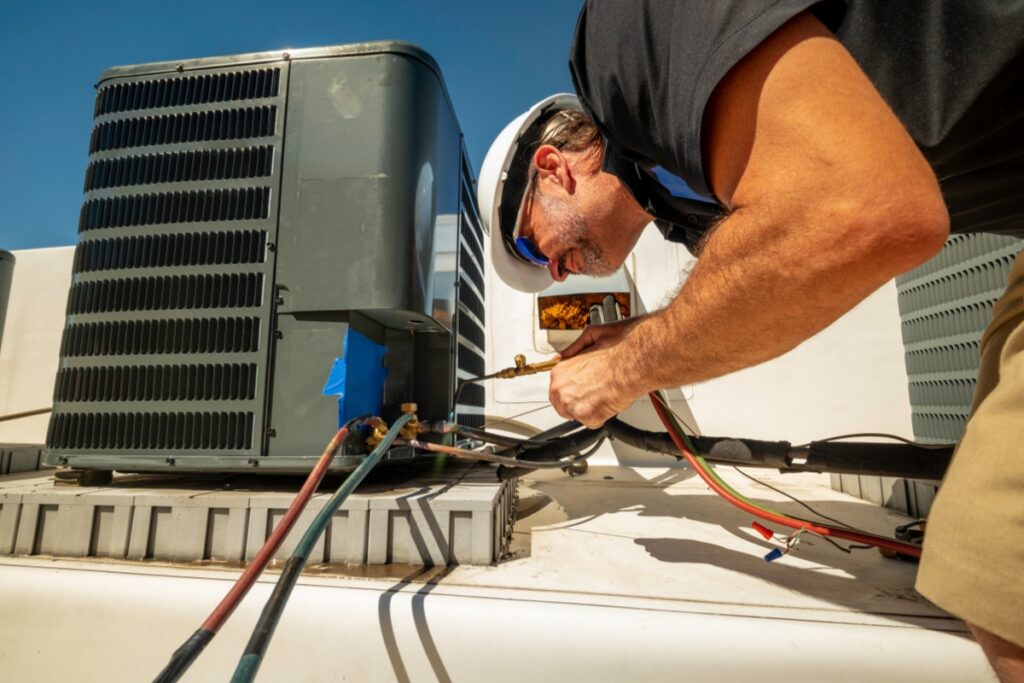
Ventilation plays a crucial role in maintaining a healthy indoor environment by providing fresh air circulation. Industrial HVAC ventilation systems have witnessed significant innovations that enhance their effectiveness while minimizing energy consumption.
One such innovation is the use of demand-controlled ventilation (DCV) systems. These systems monitor the occupancy levels in different areas of the workspace and adjust ventilation rates accordingly. By providing ventilation only where and when it is needed, DCV systems optimize energy usage while ensuring adequate air exchange.
Another notable innovation is the integration of heat recovery technologies in ventilation systems. Heat recovery ventilators (HRVs) or energy recovery ventilators (ERVs) capture and transfer heat from exhaust air to incoming fresh air, reducing the need for additional heating or cooling. This not only saves energy but also improves overall system efficiency.
Smart Controls and Automation: Streamlining Climate Control Operations
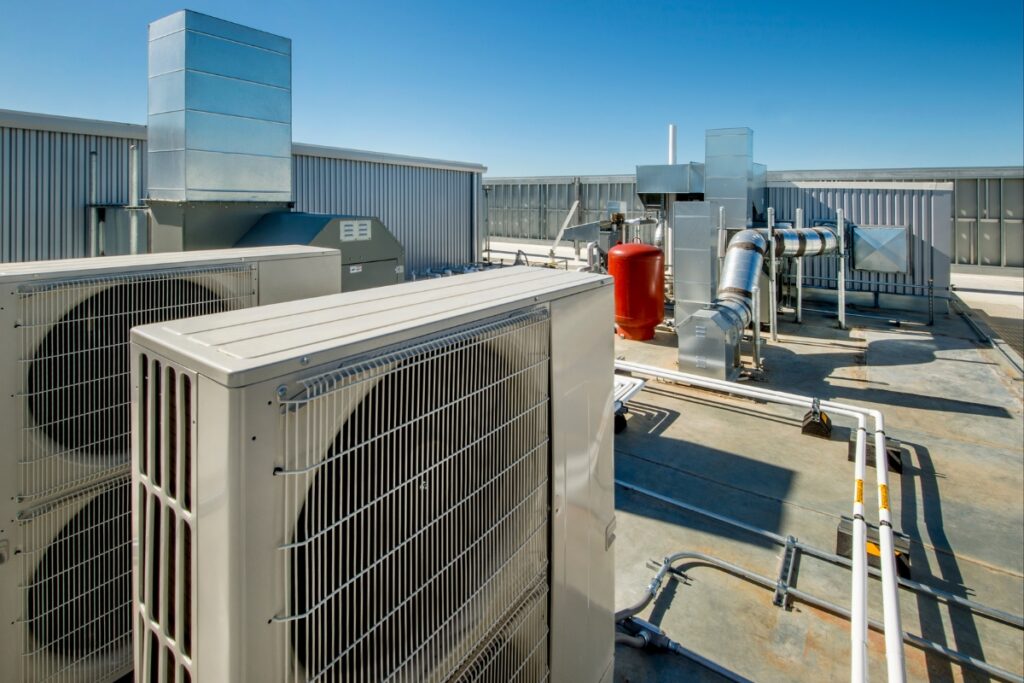
The advent of smart controls and automation has revolutionized industrial HVAC systems, making them more efficient, user-friendly, and adaptable to changing needs.
Smart controls allow for centralized monitoring and control of various HVAC parameters such as temperature, humidity, air quality, and energy consumption. This enables facility managers to have real-time insights into system performance and make data-driven decisions for optimization.
Automation further enhances the efficiency of industrial HVAC systems by automating routine tasks such as temperature adjustments or equipment maintenance. This reduces human intervention and potential errors while ensuring that the system operates at its optimal level at all times.
Moreover, smart controls and automation enable remote access to HVAC systems, allowing facility managers to monitor and control them from anywhere using mobile devices or computers. This flexibility enhances convenience while enabling proactive maintenance and troubleshooting.
Impact of Industrial HVAC on Productivity and Employee Well-Being
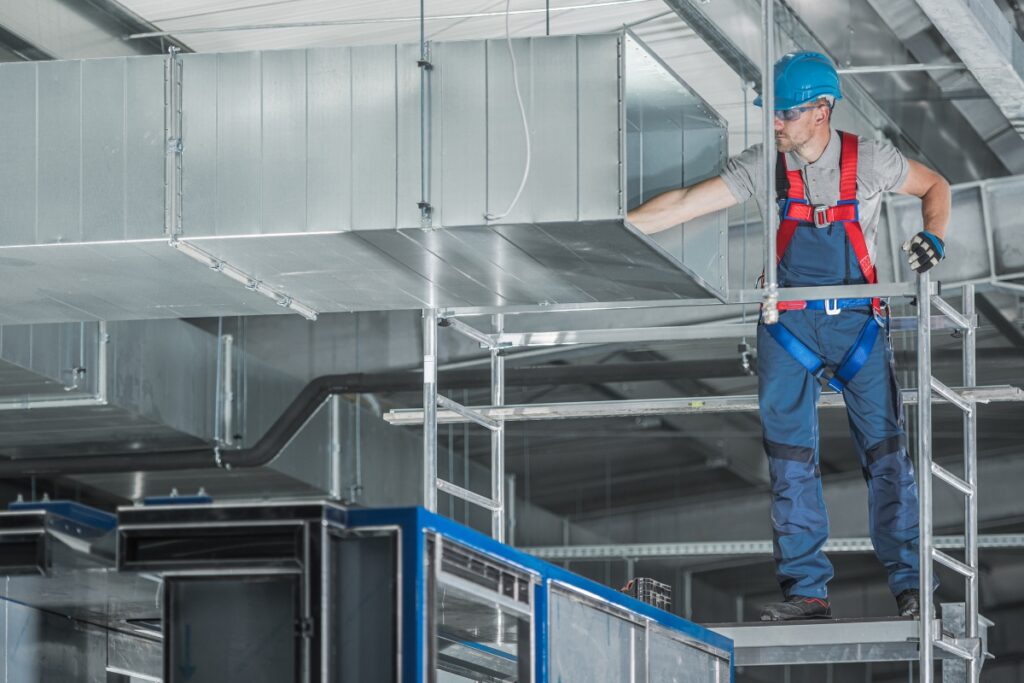
The impact of industrial HVAC on productivity and employee well-being cannot be overstated. By providing a comfortable working environment with optimal temperature levels, clean air quality, and efficient ventilation, these systems contribute significantly to employee satisfaction, health, and performance.
A comfortable workspace helps employees stay focused on their tasks without distractions or discomfort. It promotes a positive work environment and fosters creativity, collaboration, and innovation. When employees feel comfortable and valued, they are more likely to be motivated and engaged in their work.
Furthermore, industrial HVAC systems contribute to employee well-being by reducing the risk of work-related health issues. Clean air circulation minimizes the presence of allergens, pollutants, and other harmful substances that can cause respiratory problems or allergies. This leads to improved overall health and fewer sick days.
The retention rates of employees are significantly influenced by their comfort and well-being. If employees find their working conditions satisfactory, they are inclined to remain committed to the organization for an extended period. This not only minimizes turnover expenses but also ensures a steady and reliable workforce.
Future Trends and Developments in Industrial Climate Control Technology
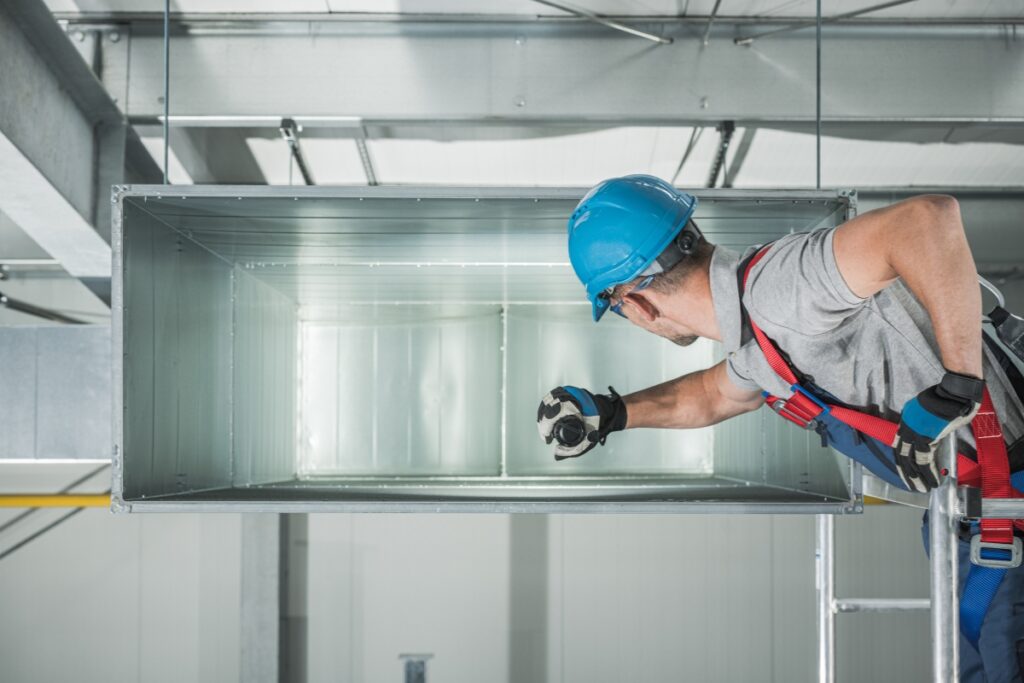
The field of industrial HVAC is continuously evolving, driven by advancements in technology and growing sustainability concerns. Several future trends and developments hold promise for further revolutionizing climate control in industrial settings.
One such trend is the integration of artificial intelligence (AI) into HVAC systems. AI algorithms can analyze vast amounts of data to optimize system performance based on factors such as occupancy patterns, weather forecasts, or energy pricing. This enables even greater energy efficiency while ensuring optimal comfort levels.
Another emerging trend is the use of advanced sensors for real-time monitoring of indoor air quality parameters such as CO2 levels or volatile organic compounds (VOCs). These sensors provide valuable insights into air quality trends and enable proactive measures to maintain a healthy working environment.
Additionally, there is a growing focus on developing HVAC systems that can operate using low-global warming potential (GWP) refrigerants. This aligns with global efforts to reduce greenhouse gas emissions and focus on sustainable solutions.
Conclusion: Transforming Workspaces with Industrial HVAC Innovations
Industrial HVAC systems have come a long way in revolutionizing workspaces with cutting-edge climate control technology. From precision temperature control to air quality management, energy efficiency solutions, and smart controls, these systems have transformed industrial environments into comfortable, healthy, and productive spaces.
Transform your workspace with state-of-the-art climate control solutions from Galgon HVAC & Mechanical Service. With our cutting-edge commercial HVAC solutions, we revolutionize work environments, ensuring optimal comfort and productivity. Call us today at (404) 352-1500 or submit a request for our services through our website contact form.

